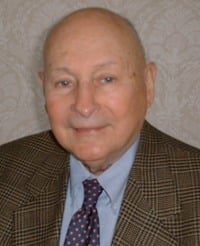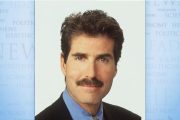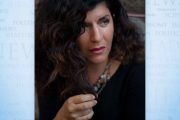
We already know of Patrick Henry College’s superb homeschooled debating team, which won against prestigious Oxford University in December 2004. Its students have also competed in the American Collegiate Moot Court Association debates, winning National Tournaments in 2005, 2006, 2009, 2010 and 2011. But now, we can also celebrate another great homeschool victory. This time on the high-school level in New York state. A team of homeschoolers from Schenectady County won the statewide mock trial championship in May 2011 against the formidable opposition of a team from the Bronx High School of Science, one of the state’s most highly rated public high schools.
The Loving Education at Home (LEAH, New York state’s homeschool organization), Schenectady Homeschool affiliate, and the Bronx teams faced off in the fictional case of Pat Parker vs. The Village of Empireville and the Board of Trustees of the Village of Empireville. The case involved an individual suing his village over a parking ban ordinance.
The LEAH Schenectady team — Laura Brincat, Michelle Brincat, Rebecca Cambron, Jon Panzera, Caleb Trouwborst, and Leah Trouwborst — is the first Capital District team to win the state championship since 1995. The team made it to the semi-finals in 2006 and 2010.
This year’s team was coached by teacher Thomas Trouwborst and attorneys Lauren Mack and John Lockwood, both of the Schenectady County Public Defender’s Office.
United States Magistrate Judge Randolph E. Treece presided over the finals at the James T. Foley Federal Courthouse in Albany on May 24th.
At the start of the season in December 2010, more than 300 high school teams from across New York State began preparing and presenting their case in local tournaments. Local county winners then moved on to regional tournaments. Six regional winners went on to compete in the state championship in Albany.
The New York Mock Trial High School Tournament is administered by the Law, Youth and Citizenship Committee of the New York State Bar Association. It is supported by the New York Bar Foundation. It is one of the largest mock trial competitions in the country.
The 77,000-member New York State Bar Association is the largest voluntary state bar association in the nation. It was founded in 1876.
Last year’s team placed fifth in the State. Luke Trouwborst was the lead attorney on that team and provided counsel to this year’s team. He provides an exciting account of how the homeschoolers trained and came away with the title this year.
Calling the Schenectady Homeschool mock trial team underdogs would hardly suffice. Mock trial simulates every aspect of a trial; each team must field a prosecution and defense team. The Schenectady Homeschoolers, though, had just six members who all had to double-team (think an eleven man football team). They were coached by local pastor Tom Trouwborst and led by his daughter, Leah Trouwborst. These six aspiring lawyers came from just four local homeschooling families. They met on the second floor of a local church.
If you just stumbled into that room and just looked at the Schenectady Homeschool team, you might think they were taking remedial Algebra classes or planning a youth group potluck dinner. Some might call them “shy,” some “introverted,” some, perhaps, “awkward.”
But as January turned to February and then March, they quietly improved, editing and re-editing their cross examinations and closing arguments. In county finals, they topped a local Catholic school. At the regional tournament, they slogged through ten-hour days of proceedings before winning a title. And at the state qualifying round, judges scored these introverts highly; highly enough to qualify them for the state championship trial.
Now, though, the run had to end. It would end in front of a Federal Magistrate Judge, with an audience in the hundreds, facing the Bronx High School of Science.
If the Bronx High School of Science were a country, its seven graduates with Nobel laureates would tie it with Spain for 23rd most in the world. Its admissions rate is harsher than most Ivy League colleges. Staff sorts through 26,000 applications and admits just 700 students, based mainly on competitive mental aptitude tests.
The Bronx High School of Science’s mock trial had fought through New York City finals to make New York state finals. They were sponsored by a prestigious New York City law firm. A team from their region had won states eight of the past ten years, and the Bronx school was a heavy favorite.
We call match-ups “David and Goliath” often, but here it might just fit. A monster from the city faced down a group of quiet, upstate New York kids. The run had to end, didn’t it?
On May 24th, 2011, the Schenectady homeschool team left “Courtroom 1” with a state title. Rebecca Cambron captivated the hushed courtroom with a quiet yet eloquent opening statement. Homeschool lawyers devastated opposing witnesses with cross-examinations that left the Bronx team alternately stuttering and speechless. Five-foot-four-inch pastor’s kid Leah Trouwborst closed out the trial with a summation that quoted, then shredded the Bronx team’s arguments.
The team ended the season by celebrating in rocking chairs on a gravel driveway, sipping homemade lemonade from plastic cups, with frogs and farm dogs as entertainment.
It’s easy to criticize imaginary homeschoolers from an armchair, but harder to beat real ones on a courtroom floor.
Pastor Trouwborst also provided us with the following details:
Pat Parker vs. The Village of Empireville and the Board of Trustees of the Village of Empireville. The case involved an individual suing his village over a parking ban ordinance and whether or not such an ordinance was constitutional. Specifically, whether or not due process was followed as the New York state constitution guarantees “no person shall be deprived of life, liberty or property without due process of law.”
Each side had three witnesses who had affidavits for the case, the fact pattern to which they had to abide by. Each affidavit had both positive and negative material. After the lawyer on your team gives a direct of the witness, opposing counsel gives a cross examination. Throughout it all, objections are made to the judge and arguments by both lawyers follow.
A lawyer for each side also gives an opening statement and then another lawyer gives a closing statement. The judge determines the winner based a variety of factors including knowledge of the law, presentation skills, professionalism, etc.
Why did we win you ask? One can never be entirely sure of that, but here are some thoughts:
1. We really emphasized getting better at ever step of the way. We talked to every judge, coach, and observer that we could and asked them to critique us and help us get better. For instance, after the regional competition, we made a road trip (a significant time investment) to talk to the judge of those finals to get his constructive criticism. Proverbs 9:9.
2. We really emphasized HOW you say something is often as important as what you say. Not in the manipulative sophist manner but that God is a God of beauty and that the Scripture provides beautiful examples of literature/rhetoric/language, in and of itself. For instance in the Finals, opposing counsel read a technically astute closing statement. Our lawyer (my daughter Leah!) was winsome, creative and powerful in her presentation. And yes, her substance was great.
3. At several key points in this trial, we were able to impeach their witnesses and that is a big scoring item. In preparing, we said that although a school like Bronx Science may have it over us in 101 ways, there is no reason why we could not learn and know our affidavits better than they knew theirs. Never forget the basics, the fundamentals. And that ended up being a big factor.
4. Some of our kids used Alpha Phonics to learn to read. There was no stopping them after that… Seriously, a solid foundation in reading followed by a rigorous classical approach which emphasized history, literature, rhetoric, logic, etc., helped us to be a very well-rounded team.
5. The grace of God.
Pastor Trouwborst’s testimony says it all. It also informs us why homeschoolers manage so often to outdo their best public school counterparts. It may have something to do with the fact that homeschoolers are generally more highly literate than the public schoolers and therefore can use language much more creatively.
Bruce Shortt, author of The Harsh Truth About Public Schools, provides some data on how well homeschoolers do on tests. “For example,” he writes, “in the most recent peer-reviewed, large-scale survey of the academic performance of homeschooled students, it was found that the average homeschooled student scored in the 89th percentile in reading, the 84th percentile in math, the 86th percentile in science, and the 84th percentile in social studies.
“In addition, surveys of homeschool academic achievement also reveal three interesting facts about homeschooling: 1) parental levels of education don’t much influence levels of academic achievement among homeschoolers, 2) children from families with incomes under $35,000 per year do nearly as well as children from families with higher incomes, and 3) homeschoolers in states with no regulation of homeschoolers perform as well academically as homeschool students in states with heavy regulation (yet another example of the education bureaucrats producing no ‘value-added’).”
LEAH’s win against the Bronx High School of Science is a significant achievement, proving that homeschooling is superior to the kind of education presently being given the children in their public schools. In other words, parents are better teachers than the so-called professionals in the public schools. That’s a phenomenon worthy of a lot more investigation.



